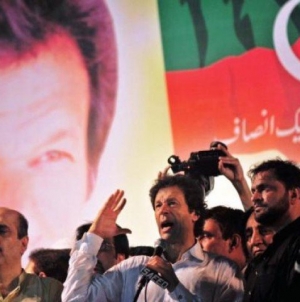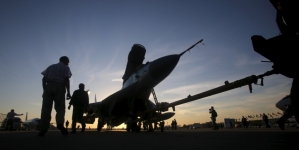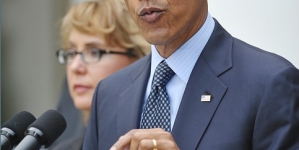-
Tips for becoming a good boxer - November 6, 2020
-
7 expert tips for making your hens night a memorable one - November 6, 2020
-
5 reasons to host your Christmas party on a cruise boat - November 6, 2020
-
What to do when you’re charged with a crime - November 6, 2020
-
Should you get one or multiple dogs? Here’s all you need to know - November 3, 2020
-
A Guide: How to Build Your Very Own Magic Mirror - February 14, 2019
-
Our Top Inspirational Baseball Stars - November 24, 2018
-
Five Tech Tools That Will Help You Turn Your Blog into a Business - November 24, 2018
-
How to Indulge on Vacation without Expanding Your Waist - November 9, 2018
-
5 Strategies for Businesses to Appeal to Today’s Increasingly Mobile-Crazed Customers - November 9, 2018
Japan observes 70th anniversary of its defeat in WWII
To countries in the region, he provided assurances that Japan was mindful of the great harm it had done.
Advertisement
In his talk, Abe said that “we must never again repeat the devastation of war“.
“Looking back at the past, with deep remorse over the war, I sincerely wish the calamities of the war will never be repeated”, he said. But because Yasukuni enshrines mostly soldiers, many see it as a symbol of Japan’s past militarism.
“We must not let our children, grandchildren, and even further generations to come, who have nothing to do with that war, be predestined to apologise”, he said.
He donated Shinto-style religious ornaments for the Yasukuni shrine, as he has done in the past since his last visit in December 2013, which triggered uproar from China and South Korea.
It is essential to draw the line on this issue so that Japan will not be called upon to apologize generation after generation.
Some neighboring countries may not be satisfied with the wording of the statement. Apologies dating to the 1990s have not prevented recurring feuds with China and South Korea, which have their own reasons, political analysts note, for keeping alive public animosity toward Japan.
In 1995, then-Japanese Prime Minister Tomiichi Murayama issued a landmark apology for Japan’s “colonial rule and aggression”. Junichiro Koizumi used exactly the same wording a decade later, on the 60th anniversary of Japan’s surrender.
Abe referred to the views of the Murayama statement and others by saying that “Japan has repeatedly expressed the feelings of deep remorse and heartfelt apology for its actions during the war”, adding, “Such a position articulated by the previous cabinets will remain unshakable into the future”. In the East China Sea, Japan objects to Chinese aerial and marine patrols around islands that both countries claim.
Of the 66 lawmakers who visited the shrine, 57 came from the LDP, two from the Democratic Party of Japan and four from the conservative Ishin no To (Japan Innovation Party).
“This was a remarkable passage”, Lind said.
The prime minister had initially thought of issuing a future-oriented statement to demonstrate his leadership in foreign policy vis-a-vis China and South Korea and at home.
Abe, who has said he wants to fix ties with China and South Korea and could visit Beijing as soon as next month, was not expected to visit Yasukuni himself on Saturday.
More active role for Japanese troops?
South Korea insists Japan has yet to fully atone for the suffering the comfort women went through and should offer further reparations.
He received praise, however, from the United States, as the White House welcomed his expression of remorse and commitment to past Japanese statements.
Despite the insufficiency in the Abe statement for clear apology and the acknowledge of wartime atrocities, South Korea said that it would monitor what the Abe cabinet would do to inherit the right perception of history held by previous governments.
An AFP reporter saw Haruko Arimura, minister in charge of women’s empowerment, enter the gates of the leafy shrine dedicated to millions who died in conflicts – but also including more than a dozen war criminals.
Advertisement
An LDP lawmaker said Prime Minister Abe’s top priority is the enactment of the security legislation.





























